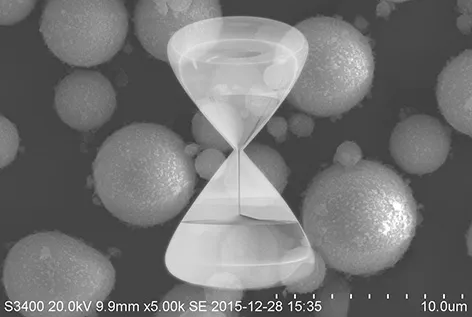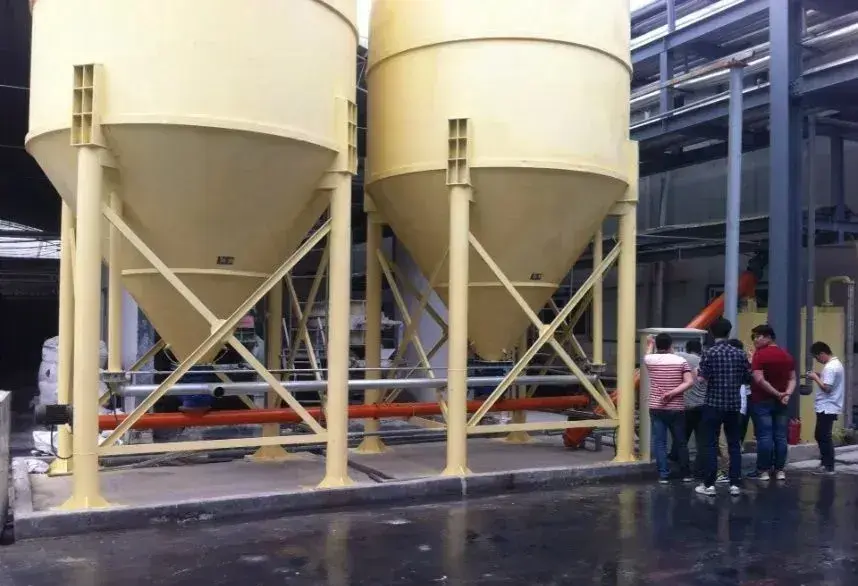Bentonite, known internationally as the “universal clay,” possesses excellent physicochemical properties. It is mainly used in foundry sand, drilling mud, iron ore pelletizing, civil engineering, and animal and poultry feed. It can also serve as a decolorizing and purifying agent, binder, thixotropic agent, suspending agent, stabilizer, filler, and catalyst. With wide applications in agriculture, light industry, cosmetics, and pharmaceuticals, bentonite is a versatile natural mineral material.
Its high value-added development is rapidly shifting from traditional applications toward fine, functional, and specialized fields.
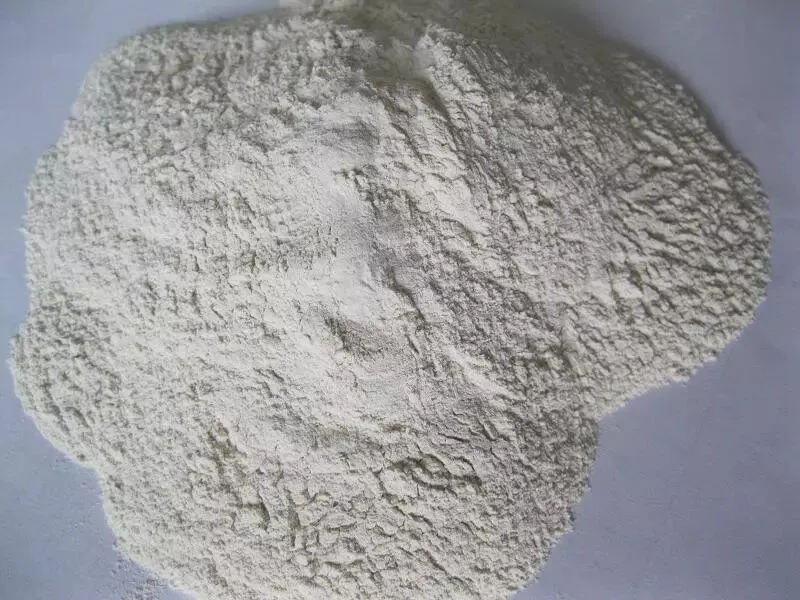
Nano-Scale Bentonite Powder
Montmorillonite is a typical layered silicate mineral. Unlike other layered silicates, it has particularly large interlayer spacing, allowing it to hold variable amounts of water molecules and exchangeable cations. X-ray diffraction analysis shows montmorillonite particle sizes approaching the nanoscale, making it a natural nanomaterial. Naturally occurring nanoscale montmorillonite is rare and must be obtained through purification. For nano-bentonite preparation, montmorillonite content should exceed 95%.
Nano-Scale Organic Bentonite
Nano-scale organic montmorillonite requires a montmorillonite purity above 98%.
Nano-Scale Organic Bentonite–Polymer Masterbatch
By compounding nano-scale organic bentonite with polymers such as polyolefins, nano-bentonite–polymer masterbatches can be produced (modified blends with easy dispersibility). When combined with rubber or elastomers, they form nano-clay composite thermoplastic elastomers, accelerating the development of nanothermoplastic elastomers.
Modified Bentonite
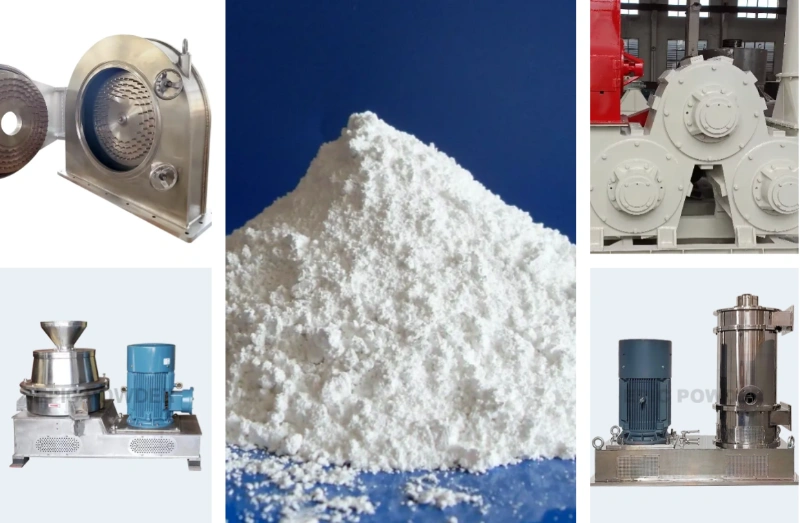
Modified bentonite is obtained by activating bentonite with organic amine salts. It is used as a filler in rubber products such as tires and sheets, as well as in some plastics. Developed in the 1980s, it has been widely applied in the former USSR, the U.S., the U.K., and elsewhere. In China, trials at tire factories such as Huadian Jihua have shown significant benefits—extending tire lifespan, reducing production costs, and earning recognition from rubber enterprises with strong market potential.
Papermaking Functional Mineral Filler
Bentonite serves as a rheology modifier in pulp, an anti-flocculant adsorbent in refiners, and a retention aid in papermaking machines.
Pharmaceutical Applications
Due to its montmorillonite content, bentonite is widely used to treat acute and chronic diarrhea, esophagitis, gastritis, colitis, and irritable bowel syndrome.
With strong adsorption capacity, bentonite can detoxify certain toxins and is also effective in treating tinea. Montmorillonite tablets are used to treat skeletal fluorosis and to improve fluoride-contaminated water by reducing fluoride levels.
Bentonite can also be formulated into binders (e.g., dental cements, medicated tooth powders, transdermal preparations), suspending agents, adsorbents, filters, emulsifiers, ointment bases, carriers (providing controlled release for drugs such as fluorouracil), excipients, adsorptive agents for pharmaceuticals, ointment and pill binders, purifying agents, disinfectants, thickeners, fillers, and enhancers.
Beverage Clarifier
Bentonite clarifiers are used in beverages, particularly wines, to improve clarity, stabilize color, and adsorb tannins. They reduce acetaldehyde and hydrogen sulfide formation while eliminating foreign odors.
Cosmetic Base Material
In cosmetics, bentonite provides cleansing, detoxifying, anti-itch, beautifying, and moisturizing effects.
Starch Modifier
Improves storage stability and performance in use.
Additive for Vegetarians
Acts as a substitute for traditional additives derived from animal fats, such as proteins and gelatin.
Pigment Filler
Bentonite pigment fillers provide excellent pigment suspension and film reinforcement.
Inorganic Fabric Softener
In liquid and solid detergents, bentonite acts as a fabric softener, enhancing wash performance and lowering production costs. In detergents, it absorbs dissolved impurities such as ions, prevents crust and residue buildup on fabrics, and reduces zeolite deposition. Besides fabric softening, it also acts as a thickener, keeping dirt and particles suspended in washing fluids.
Ceramic Plasticizer

As a ceramic filler and plasticizer, bentonite enhances rheological and swelling properties of ceramic pastes, providing plasticity, strength, and stable colloidal suspension of water. Its dry bonding capability ensures strong cohesion and flexural strength in sintered products.
Functions include:
- Increasing plasticity and strength of green bodies or glazes;
- Providing strong suspension and thixotropy;
- Acting as a lubricant, aiding ball milling.
White Carbon Black (Precipitated Silica)
Using bentonite as a raw material to produce white carbon black features advanced processes, low energy consumption, and inexpensive raw materials. Recognized as a national key product for development, bentonite-derived silica has cost advantages in reinforcing light-colored rubber products. Compared with the precipitation method (neutralizing water glass with acid), the energy consumption is only 1/5 and raw material cost is only 1/3.
White Carbon Black/Bentonite Composite Filler
A composite filler combining bentonite and silica offers the combined functional properties of both, along with synergistic effects, broadening its applications in light-colored rubber products.
Toothpaste Abrasive
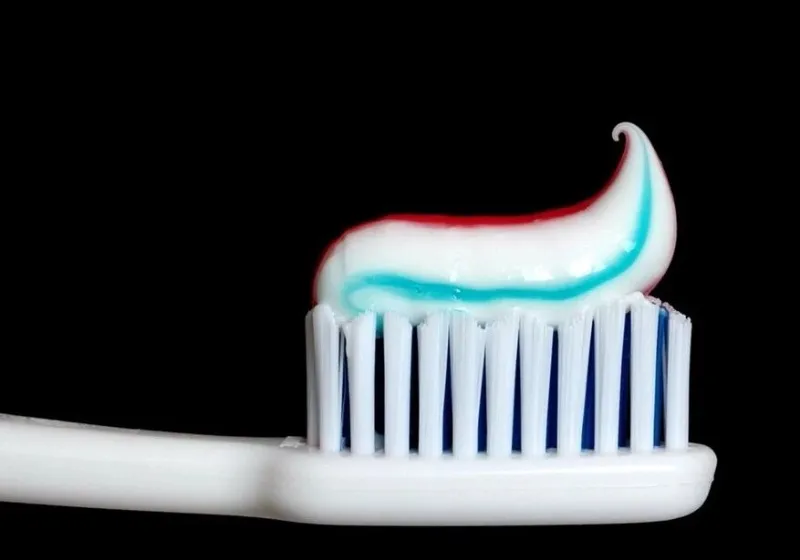
Bentonite-based abrasives for toothpaste feature good fluidity and moisture retention. Toothpastes made with them are fine, glossy, and stable, with no caking or granulation even after 3 months at 50 °C. They are non-corrosive to aluminum tubes and produce smooth, delicate paste bodies. Their performance is comparable to imported magnesium aluminum silicate abrasives and thickeners.
Adsorbent
Used as deodorants in refrigerators and for pets, as fragrance carriers in public spaces, and as adsorbents for toxic elements in wastewater treatment.
Feed Additive
As an additive in livestock and poultry feed, bentonite improves appetite, supplies minerals, prevents and treats diseases.
Natural Pesticide and Fertilizer
In agriculture, bentonite serves as an alternative to pesticides, controlling pests by forming a protective montmorillonite film barrier on plants.
It also:
- Prevents insect oviposition;
- Controls fungal diseases;
- Protects plants from frost damage;
- Prevents fruit sunburn and heat-related yield loss;
- Enhances photosynthesis;
- Improves soil structure and fertility;
- Increases crop yields, especially for grains and orchards.
Epic Powder
Epic Powder, 20+ years of work experience in the ultrafine powder industry. Actively promote the future development of ultra-fine powder, focusing on crushing, grinding, classifying and modification process of ultra-fine powder. Contact us for a free consultation and customized solutions! Our expert team is dedicated to providing high-quality products and services to maximize the value of your powder processing. Epic Powder—Your Trusted Powder Processing Expert !
